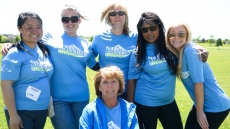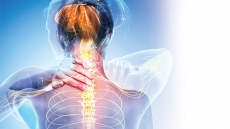We are a society of do-ers. While this drives our society forward, we want to remember that our body has a limited energetic capacity.
Is It possible, we would experience more success in our health by adopting a season where we do less.
Hear me out. I’ve put down a few reasons to help create logic in proposing how I think we could benefit from less doing.
Firstly, in order to use the term less, you need your own frame of reference. Your frame of reference is unique to you. You are the best judge for what you need in your life, and sometimes we get to do things that are a little out of our comfort zone to make small shifts that lead to small wins.
Before we get into the juice, let’s preface with, these proposals may not resonate for you. I do hope there is one small takeaway that will help you, on your health journey. Here goes! We are a society of do-ers. While this drives our society forward, we want to remember that our body has a limited energetic capacity.
Visualize a pot or a tank. This pot or tank is yours, and it holds all the energy your body has.Visualize your name on this tank “_____ (your name)’s energetic capacity.” Your body has one energy tank. This tank is used for physical, mental, and emotional functions. Under the umbrella of physical demands is also physiological processes - like digestion, fat-burning, hormone production, detoxification, skin repair, etc. Mental and emotional functions of the body are more self-explanatory The tank of energy is not bottomless, and it can be emptied out if not refuelled.

Now keeping this energy tank in your mind, let’s talk about doing less, and how it could potentially help us with our health. Also, while reading, keep in mind, health is wealth. Health is energy. Health is vitality. Health is freedom of movement.
Now let’s move forward. One of our human gifts is our ability to focus. Focus is a process that requires the brain to process and direct attention to a particular task. Many hours of focus, means our brain is constantly stimulated to process information. This mental focus is mileage and will consume energy from the tank.
What if we were to adopt some measures that saved some energy? Would this leave us with some extra mental capacity? Perhaps that mental capacity can be directed toward clearer communication, which would in turn prevent stress and frustration that we potentially experience from miscommunication.
All our relationships require energy. Can you think of a time when you didn’t have mental capacity for a certain situation? Did it lead to stress? For myself, the answer is Yes and Yes. Furthermore, the feelings of stress and frustration lead to chemical and hormonal releases, which we will talk about next. The next way I feel we could benefit by doing less is perhaps incorporating variety in our exercise intensity. Hear me out.
Exercise is a form of stress on the body. I’m not suggesting to not exercise, but I am proposing creating perhaps space to experiment with less exercise intensity and perhaps a longer duration stretch. This is like winning a little energy jackpot. 500 points please! Not only are we reducing the oxidative stress on the body, we are also filling energy back into the vessel via stretching, breathwork, or other nourishing, therapeutic practices. Stretching and breathwork are great for opening any blocked energy pathways in our body as they allow the nervous system to down regulate. This offers the body - space for healing and regeneration. So, most likely by now you have recognized that my proposal of doing less, is based around the concept of creating space in the mind and body. Positioning it as “less” actually needs to be revisited because we are actually being more conscious about our health from a birds eye view, which may be slightly different than what we have been taught.
I hope this has inspired you in some way to approach your health in a way that feels better for this season of your life. Thank you for indulging with me on this topic!






